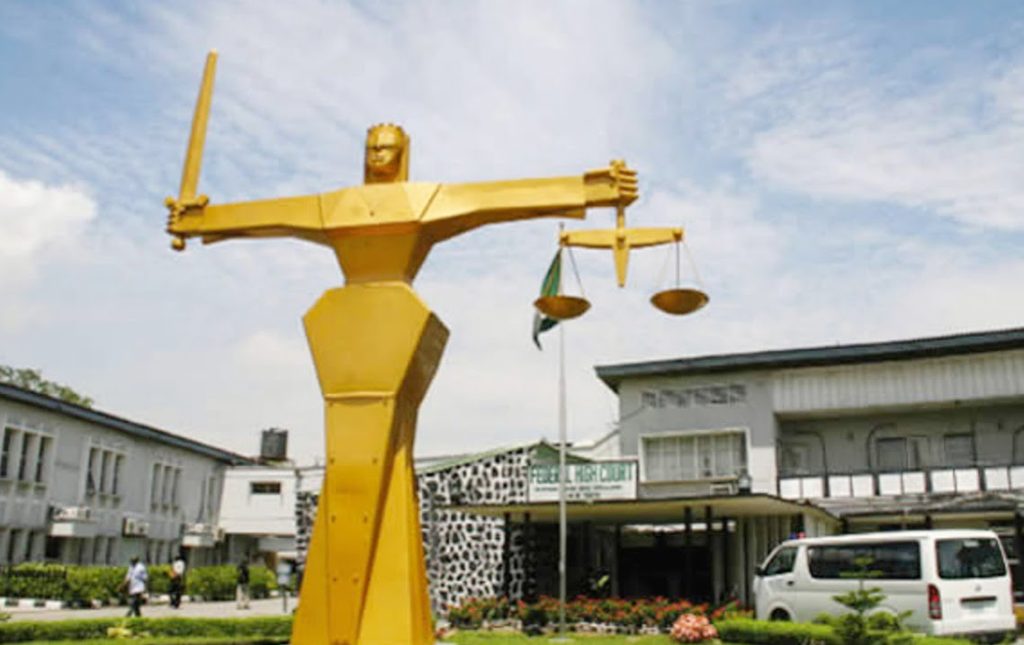Justice Umar Mohammed cited “bias” on the part of a member of the tribunal and a lack of fair hearing while reversing the verdict and ordering a retrial.
This legal development between AEDC and the FIRS comes against the backdrop of a December 14, 2023, judgment by the Tax Appeal Tribunal, which directed AEDC to settle its alleged tax liabilities.
Legal Dispute
Recall that AEDC, in suit No: FHC/ABJ/TA/01/24, sought an order allowing its appeal and setting aside the judgment of the tribunal while remitting the same to the tribunal for a fresh trial.
The electricity distribution company argued, among others, that compelling it to pay the amount would “jeopardize the supply of electricity to millions of consumers in Kogi State, Nasarawa State, Niger State and the Federal Capital Territory, Abuja.”
Furthermore, the AEDC legal team deposed that Honourable Ajayi Julius Bamidele, who served as a member of the tribunal panel that decided the VAT appeal and delivered the judgment, formerly worked as a staff member of the FIRS and took decisions on its liabilities during a tax audit.
However, the FIRS legal team countered this argument, accusing the AEDC of failing to raise the issue at the tribunal.
What the Court Said
Delivering judgment, Justice Umar held that the deposition by AEDC and KPMG, that Honourable Bamidele was at the time responsible for the FIRS tax audit, which conducted the tax monitoring exercise, was not “countered by the counter-affidavit of the FIRS.”
The judge held that the above facts were further amplified by additional evidence from Mr. Martin A., a partner in the tax division of KPMG Advisory Services, the firm engaged with respect to the assessment arising from the value-added tax conducted on AEDC’s records during the period under review.
Quoting the KPMG evidence, the judge read in open court:
“In the discharge of my responsibilities, I liaised with the tax audit team of the FIRS, which reported to Mr. Julius Bamidele Ajayi, who was at that time the coordinating director at the FIRS and responsible for tax audit, which conducted the tax management exercise.”
The judge said this uncontroverted issue, as raised by AEDC, affected the jurisdiction of the court.
He added that the contention of the FIRS that AEDC was aware of this fact but failed to raise it before the tribunal was “of no moment.”
Citing the Supreme Court, the judge held that it is a principle of natural justice that no person can adjudicate over a matter in which they have a vested interest or involvement.
Justice Umar stated that the doctrine of bias is not permitted in law, as “a taint of bias will destroy the integrity of proceedings conducted in such a manner.”
He emphasised:
“This court is of the view that the presence of Honourable Mr. Ajayi William Bamidele on the tribunal, being a former staff of the FIRS, raises the issue of likelihood of bias.”
The judge held that once the issue of natural justice is violated, it does not matter if the proper thing has been done; the decision and proceedings will still be null and void.
He added that if a court finds a breach of fair hearing in the conduct of proceedings that produced the decision reached, the proper order is to set it aside and order a retrial.
Subsequently, the judge found merit in the AEDC appeal, holding that the judgment of the tribunal is hereby set aside.
The court also remitted the case file back to the tribunal for retrial.
Backstory
Nairametrics previously reported that the AEDC had approached the court after a five-member Tax Appeal Commission panel led by its presiding judge, Hon. Iriogbe Alice, entered judgment against the company in suit No: TAT/ABJ/APP/330/2022.
AEDC’s legal team argued that sometime in 2018, the FIRS, in conjunction with the Economic and Financial Crimes Commission (EFCC), conducted a tax investigation on the company for the 2013–2017 years of assessment and claimed it owed billions.
AEDC disagreed with the findings, adding that the FIRS did not provide any lawful basis for such liability.
However, the FIRS legal team objected to the appellant’s claims, insisting its assessment was valid.
The Tribunal subsequently declared its judgment against AEDC, stating:
“This Honourable Tribunal compels the Appellant to pay N4,534,358,874.00 (Four Billion, Five Hundred and Thirty-Four Million, Three Hundred and Fifty-Eight Thousand, Eight Hundred and Seventy-Four Naira) only as VAT liability for 2013–2017, as contained in the Notice of Refusal to Amend (NORA) to the Respondent forthwith.
“This Honourable Tribunal compels the Appellant to pay the sum of N780,307,078.00 (Seven Hundred and Eighty Million, Three Hundred and Seven Thousand and Seventy-Eight Naira) only as WHT liability for 2013 and 2016 as established by its consultant, KPMG.
“This Honourable Tribunal further compels the Appellant to pay the sum of N100,000 (One Hundred Thousand Naira only) being cost awarded in favour of the Respondent in the course of the proceedings.”
This was the status of the AEDC–FIRS dispute when today’s judgment reversed the entire proceedings and verdict.
Stay ahead with the latest updates!
Join The Podium Media on WhatsApp for real-time news alerts, breaking stories, and exclusive content delivered straight to your phone. Don’t miss a headline — subscribe now!
Chat with Us on WhatsApp







